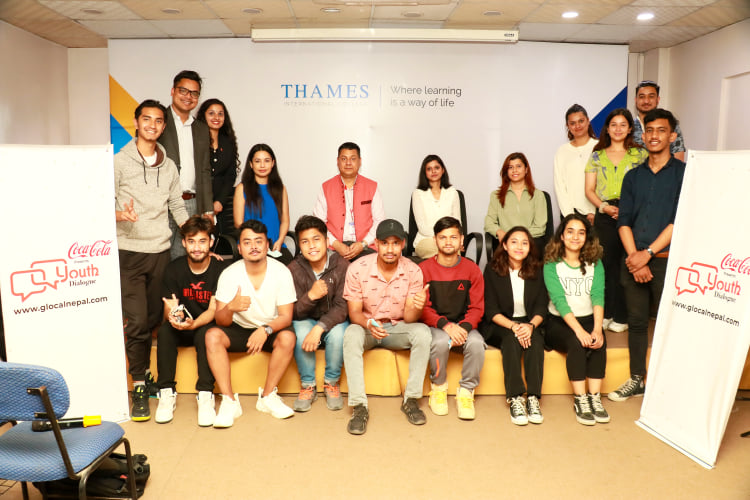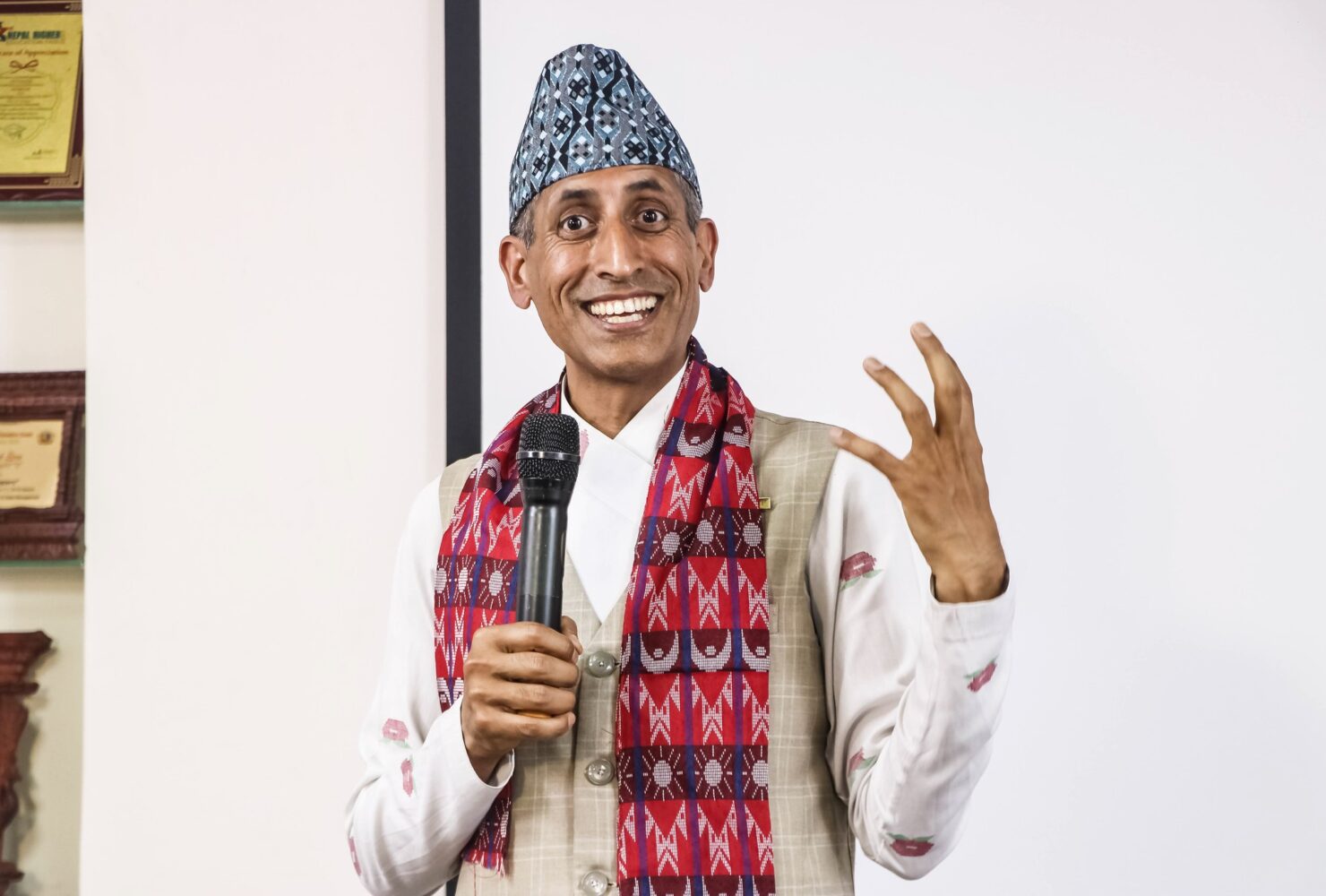Coca-Cola presents Youth Dialogue is a monthly series of youth-focused discussion sessions organized by Glocal Pvt. Ltd. A platform where different people from different sectors share their experiences, challenges, and motivations.
Youth dialogue delivered fascinating sessions on a variety of topics like sport, environment, entertainment, business, culture, and tourism to develop skills for an ever-changing market. The speakers of the program include youth influencers, skillful people, entrepreneurs, politicians, and celebrities. It is a 1- hour long discussion series that contains a live audience and later it will be broadcast through YouTube, Instagram and Facebook.
Youth Dialogue’s sixth session conversed on the topic of “Advocating for the Sustainable Management of Water Resources.” An insightful and extremely invigorating session ended with a successful presence of students amidst an event held at the premises of Thames International College. The dialogue had the presence of three amazing personalities and the participating panelists were;
- Dr. Deepak Aryal, Professor and Head of Department, Central Department of Hydrology and Meteorology, TU;
- Ms. Anisha Karn, CEO, SmartPaani Pvt. Ltd., Nepal;
- Ms. Susmita Mishra, Regional Youth Focal Point for Central and South Asia in the Water and Climate Coalition
The panel discussion was moderated by Ms. Saru Pyakurel, Corporate Officer at Glocal Pvt. Ltd.
Here is the gist of the discussion;
The one-hour event facilitated an engaging discussion about the individual’s role in sustainable water management practices, the overall awareness of water management in the youth sector, career prospects in Hydrology and Meteorology, and recommendations to the young people of the country for water management; including the motive for engaging in water management. The goal is to manage water resources in such a way that they maintain and reinforce the resilience of ecosystems, as well as the benefits they provide.
In response to the question of what should be the individual’s role in sustainable water management, the speakers of the discussion shared their thoughts. Ms. Anusha Karn shared that each of us can always do something. Some ways to conserve water include closing the tap when brushing, taking shorter showers, and more. Rainwater can be utilized through easy ways of capitalizing on the free-falling water. Rainfall is an alternative source so that we will use less groundwater and it will last for a longer time. It is extremely important to think about alternative ways to conserve water that we can use. It is very simple to build systems that would re-charge ground water at a household level. Avoiding plastic bottled water is another way to conserve water and the environment. Open spaces will help conserve groundwater, so people should create more of them. Individually, we can all do small, basic things that will help. According to Mr. Deepak Aryal, we have many sources of water, so if we only use rainwater, it would be sufficient. We need to explore detailed knowledge about these things.
In answering a question about how long you have been in climate activism and about how you have advocated in these contexts, Ms. Sushmita Mishra shared that she finds scarcity of water and working in water to be extremely essential to her. Nepal is one of the least emitters of carbon emission. In vulnerability assessment, Nepal falls in the 4thmost vulnerable country where drought landslides are anticipated disasters. Still, in rural areas, women and young girls are missing out on education to take one jar of water and walk for 4-5 hours. The main agenda of working in the field of water management is the striking point of how women and girls are facing these issues. Among 14 world’s highest peaks, Nepal has 8 world’s highest peaks. Out of total water, 97% is ocean water, 3% is fresh water in which 2% of water is in the form of snow. Preserving water is very important as groundwater is very essential, it is fresh. So, we need to understand the value of groundwater. To bring all the issues together and to bring some solutions to these problems, I have been engaged in water-related issues.
Talking about awareness and water management in the youth sector; Ms. Karn shared that awareness is not lacking in the younger generation. Knowledge is not lacking among youths, it’s about how active they are practising those things that count.
The discussion then turned to how students can pursue careers in the sector after graduating. In Mr. Aryal’s opinion, about half of the students drop out after graduation. Many of them move abroad to work rather than stay in their home countries. Those in Nepal work in Forecasting, groundwater division, department of hydrology and meteorology, NGOs, and INGOs. Others are technocrats with their own companies; they produce rain gauges and make hydrological and meteorological instruments.
Ms. Karn responded to a question about what advice she would give to the country’s youth in terms of water management — Think of all the ways to conserve water, use alternate sources, and give respect to water as it deserves. Despite the scarcity of fuel, earthquakes, and pandemics, life would be extremely difficult without water. Therefore, it is very important to consider this issue. Youths are going to form the next generation, the future lies in their hands. Be careful, be aware, and think about all the effects of your actions.
In addition, Ms. Mishra added that we should not take water or climate as a technical issue, but rather as a general issue. In the absence of action and effort to save water, water will be scarce and we will suffer from waterborne diseases. Water is not just for future generations, but also us, so let’s be careful and save it. Additionally, Mr. Aryal said that spring and glacier water may dry up. Water conservation requires us to simplify our lives as we are living so luxuriously today.





